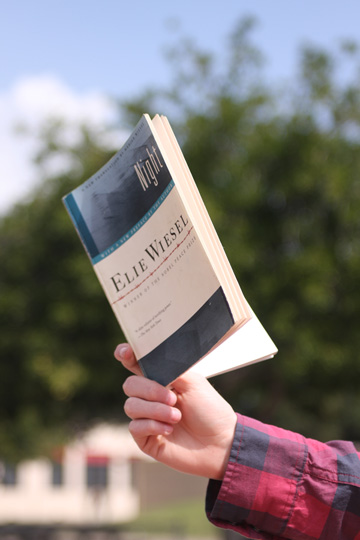For some teenage students, reading is looked at as a punishment more than a pleasure; getting a student to actually enjoy a book is nearly impossible. Though reading is somewhat frowned upon, there are a few books in which a teen might actually enjoy.
“When I read “Tweak”, I didn’t look at it as a dread to read,” senior Lauren Brasov said. “I read the book because it was raw, and depicted what some people can go through in life.”
“Tweak,” a well written autobiography by author Nic Sheff, goes well through the life of a drug addict. When starting self-reflection, just after the author had gone to his numerous drug counseling programs, Sheff planned to write the book in order to adhere to the youth and explain that drugs are more than just powder, rocks, or leaves, but they are something than can obsess your life. Though the book is far from “Great Gastby” or “Of Mice and Men,” when it come to a story, it is still well written and will definitely keeps the reader interested until the very end. Pertaining to the average high school student, the next book is well known as a relatable read for a teenager and their life during high school.
“When I read the book I couldn’t put it down,” senior Sarina Hernandez said. “It was the first piece of literature I actually enjoyed reading.”
“Perks of Being a Wallflower,” a novel written by author Stephen Chbosky, is a collection of letters which is written by an unknown character named Charlie and addressed to an anonymous reader. The protagonist of the book tells of the difficulties throughout his life as a young adult life. From a close friend’s suicide, to love and drugs, the main character’s stories keep the reader interested.
“Even though I haven’t gone through as many situations as Charlie, it was still relatable on some levels,” Hernandez said.
The last book on our list is a brilliant story of courage, survival, and history. “Night,” written by author Elie Wiesel tells his story of being a holocaust survivor in two of the deadliest Nazi infiltrated camps, Auschwitz and Buchenwald. The author also tells of how he was separated from his family and how he relied on the love of his father and other people in the camps to hang onto his life and tell of what had happened during those dark times of the 1940s.
“I highly recommend this book,” English teacher Clara Cleek said. “I’m allowing my class to read it because I know they’ll take in what the author had gone through.”
Reading these three books may seem like a task at first, but when the student starts to get into the novels listed, it’s almost impossible to stop reading. These pieces of literature are a great example that proves books can be interesting, fun, and gripping for the reader.



